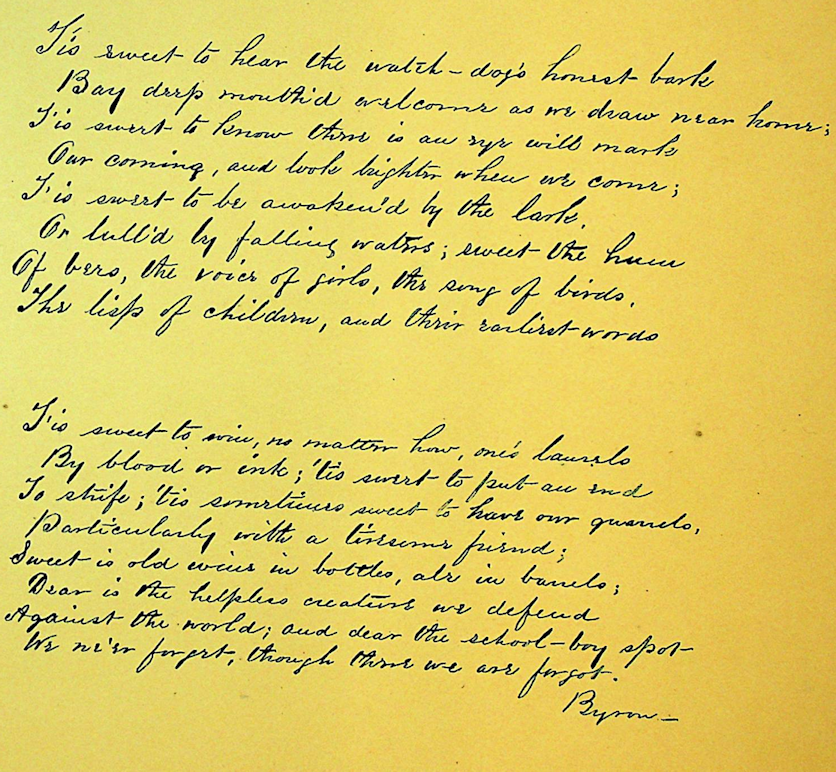Ariana Malthaner
Isabella Woods had a particular fondness for Lord Byron, based on the number of sections of his poems in her beautiful handwriting.
The first of the her personal collection are stanzas 123 and 126 from Lord Byron’s Don Juan. Turning the Spanish legend of Don Juan, the infamous womaniser, on its head, Byron’s epic poem is a satirical take in which Don Juan is not the seducer, but the seducee, easily led astray by women.
The poem is an epic poem, divided into sixteen canto, in the style of ottava rima; a specific Italian rhyming style, in which each stanza is comprised of eight iambic lines, with three alternating rhymes followed by one double rhyme. Or, ABABABCC, if it helps you visualise.
Isabella has not transcribed the whole poem – as that certainly would be quite a feat! – and has instead selected only a few stanzas which clearly held meaning to her.

T’is sweet to hear the watch dog’s honest bark
Bay deep mouth’d welcome as we draw near home;
T’is sweet to know there is an eye will mark
Our coming, and look brighter when we come;
Or lull’d by falling waters; sweet the hum
Of bees, the voice of girls, the song of birds
The lisp of children, and their earliest words
T’is sweet t win, no matter how, one’s laurels
By blood or ink; ’tis sweet to put an end
To strife; ’tis sometimes sweet to have our quarrels,
Particularly with a tiresome friend;
Sweet is old wine in bottles, ale in barrels;
Dear is the helpless creature we defend
Against the world; and dear the schoolboy spot
We ne’er forget, though there we are forgot
